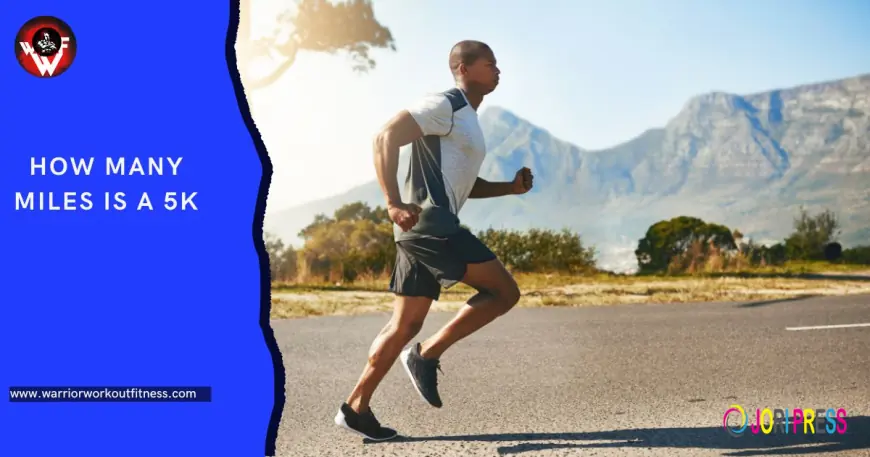How Many Miles Is a 5K? Understanding the Distance and How to Conquer It

If you are new to running or preparing for your first race, one of the most common questions you might ask is: ? A 5K race is 5 kilometers long, which converts to approximately 3.1 miles. This makes it one of the most popular race distances worldwide, especially for beginners who want a manageable yet challenging goal. But beyond just knowing the number, understanding what the distance means for training, preparation, and performance can help you succeed in your fitness journey.
Why the 5K Is So Popular
The 5K distance strikes a perfect balance—it is short enough that most people can prepare for it within a couple of months, but long enough to give you a real sense of accomplishment. Unlike marathons or half marathons, you don’t need to dedicate hours each day to training. For many, finishing a 5K is the first step into the world of running, and it often becomes a gateway to longer races.
Additionally, 5K events are widely accessible. They’re often tied to charity runs, local community races, and fitness challenges, which makes them approachable, fun, and motivating. Even if you walk part of the race, crossing that finish line feels like a victory.
Breaking Down the Distance
To fully grasp the distance, let’s break it down.
-
1 kilometer = 0.62 miles
-
5 kilometers = 3.1 miles
If you’ve ever gone for a walk or jog around your neighborhood, chances are you’ve covered something close to this distance without even realizing it. On average, a brisk walk of 45–60 minutes or a jog of 25–40 minutes (depending on your pace) is what it takes to complete a 5K.
So when you ask, how many miles is a 5K?—it’s not just about numbers. It’s about visualizing a doable challenge that most people, with consistent effort, can train to finish.
Training for a 5K
The beauty of training for a 5K is that it doesn’t demand extreme fitness levels to get started. Beginners can start with a walk-run approach, alternating between jogging and walking, gradually increasing running time each week. Popular training programs like “Couch to 5K” are built around this concept and typically last 6 to 8 weeks.
Here are some general training tips:
-
Start Slow – Don’t push too hard at the beginning. Focus on building endurance.
-
Consistency Matters – Aim for 3–4 days of running or walking per week.
-
Mix It Up – Add strength training or cross-training to avoid injury.
-
Rest and Recovery – Allow your muscles time to rebuild and adapt.
By following a structured routine, most people can run or jog an entire 5K within two months of consistent training.
The Mental Side of Running 3.1 Miles
Running a 5K is not only about physical stamina but also about mental strength. The distance can feel intimidating for first-timers, but breaking it into smaller segments helps. For instance:
-
The first mile is about warming up and finding your rhythm.
-
The second mile is about maintaining steady effort.
-
The final mile is where determination kicks in, pushing you toward the finish line.
Focusing on small goals within the race—like reaching the next lamppost or completing the next half mile—can make the distance feel much more manageable.
How 5K Fits Into a Bigger Fitness Picture
While some people aim to run a single 5K as a bucket-list goal, many runners keep returning to this distance. It’s an excellent test of speed and endurance, and it can easily fit into a busy lifestyle. A 3.1-mile run is short enough to squeeze in before work, during a lunch break, or after dinner.
For those with aspirations of running longer races such as 10Ks, half marathons, or marathons, the 5K serves as a foundational stepping stone. It builds the endurance base and mental toughness needed for longer training cycles.
The Role of Pace in Running a 5K
One of the key aspects of tackling a 5K is understanding your pace. If you’re new, don’t worry about running fast. Completing the distance matters more than the time. Over time, you can track your pace per mile and work on gradually improving it. For example:
-
Beginners may complete a 5K in 35–45 minutes.
-
Intermediate runners often finish around 25–35 minutes.
-
Advanced runners may run it in under 20 minutes.
Monitoring your pace helps you train smarter and avoid burnout during the race.
Staying Motivated
Training for a 5K is easier when you have motivation. Signing up for a local race, running with a friend, or tracking your progress with apps can keep you on track. Many communities and websites, such as warriorworkoutfitness, provide tips, training plans, and motivational resources to help you stay committed and confident throughout your journey.
Race Day Tips
When the big day arrives, preparation can make all the difference. Here are a few tips for first-time 5K runners:
-
Eat Light – Have a small, easily digestible meal an hour or two before the race.
-
Warm Up – A light jog and stretching will loosen your muscles.
-
Start Easy – Resist the temptation to sprint at the beginning; save energy for the last mile.
-
Enjoy the Experience – Smile, soak up the atmosphere, and celebrate your achievement.
Crossing the finish line of your first 5K is not just about numbers; it’s about proving to yourself that you can set and achieve goals.
Final Thoughts
So, how many miles is a 5K? The simple answer is 3.1 miles. But beyond the math, a 5K represents a journey of determination, discipline, and personal growth. Whether you’re walking, jogging, or running, completing this distance is a victory worth celebrating.
For beginners, it’s an approachable starting point. For seasoned athletes, it’s a test of speed and endurance. And for everyone, it’s a reminder that fitness doesn’t have to be complicated—it starts with one step, one mile, and one finish line at a time.
What's Your Reaction?
 Like
0
Like
0
 Dislike
0
Dislike
0
 Love
0
Love
0
 Funny
0
Funny
0
 Angry
0
Angry
0
 Sad
0
Sad
0
 Wow
0
Wow
0

















































